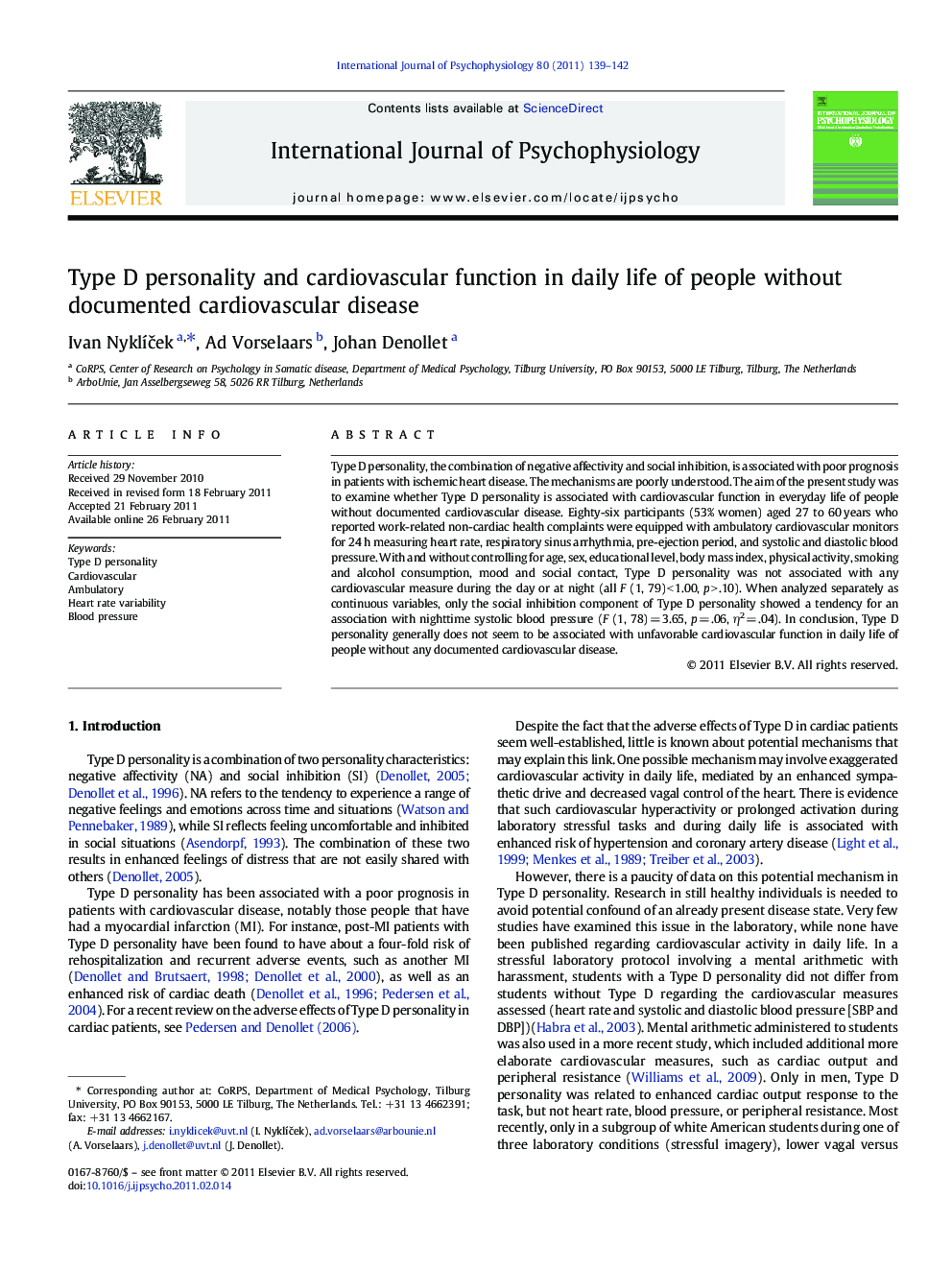| Article ID | Journal | Published Year | Pages | File Type |
|---|---|---|---|---|
| 931426 | International Journal of Psychophysiology | 2011 | 4 Pages |
Type D personality, the combination of negative affectivity and social inhibition, is associated with poor prognosis in patients with ischemic heart disease. The mechanisms are poorly understood. The aim of the present study was to examine whether Type D personality is associated with cardiovascular function in everyday life of people without documented cardiovascular disease. Eighty-six participants (53% women) aged 27 to 60 years who reported work-related non-cardiac health complaints were equipped with ambulatory cardiovascular monitors for 24 h measuring heart rate, respiratory sinus arrhythmia, pre-ejection period, and systolic and diastolic blood pressure. With and without controlling for age, sex, educational level, body mass index, physical activity, smoking and alcohol consumption, mood and social contact, Type D personality was not associated with any cardiovascular measure during the day or at night (all F (1, 79) < 1.00, p > .10). When analyzed separately as continuous variables, only the social inhibition component of Type D personality showed a tendency for an association with nighttime systolic blood pressure (F (1, 78) = 3.65, p = .06, η2 = .04). In conclusion, Type D personality generally does not seem to be associated with unfavorable cardiovascular function in daily life of people without any documented cardiovascular disease.
Research highlights►Type D personality has been found to be a risk factor for adverse cardiac outcome. ►Physiological mechanisms for this association are unknown. ►Type D — daily cardiovascular function link was examined in healthy people. ►No association was found between Type D personality and cardiovascular function. ►Type D personality is not a cardiovascular risk in healthy people.
